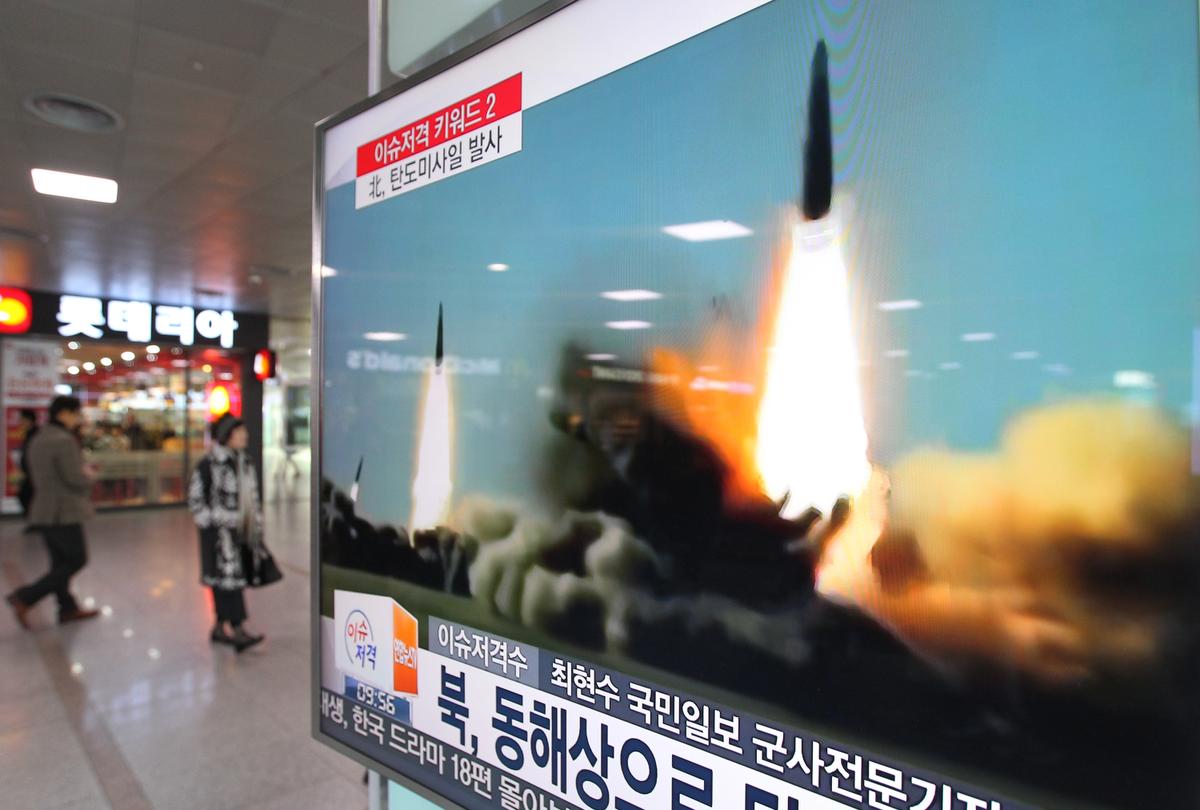North Korea’s fifth nuclear test is yet more evidence of how ineffective sanctions are in deterring Pyongyang while China is unwilling or unable to intervene, analysts say, with some arguing a new approach might be necessary — engagement.
Since Pyongyang’s first nuclear test sent tremors worldwide, it has been hit by five sets of United Nations sanctions over its atomic and missile programs.
The carrot has been tried as well as the stick, with offers of food aid if Pyongyang abandons its weapons.
It has pursued them regardless, even as its own people have regularly suffered crippling food shortages over the years, under both Kim Jong-Il and his son and successor Kim Jong-Un.
His rule — the third reign of the Kim dynasty — has seen former top officials executed, including his own uncle, and blood-curdling threats of war against the South and the US, interspersed with appeals for peace.
At the same time he has yet to visit Beijing to pay his respects to China’s rulers, his country’s key diplomatic protector and provider of trade and aid.
Even so, and despite Friday’s new test, Beijing is unlikely “to opt for significantly greater pressure on the DPRK”, said Bonnie Glaser, senior adviser for Asia at the Center for Strategic and International Studies (CSIS) in Washington.
China prefers “diplomatic engagement with Pyongyang that results in a peace treaty and an eventual decision by the DPRK to give up its nuclear weapons in exchange for economic assistance and US diplomatic recognition,” she said.
Each successive test has been met with greater outrage and hand-wringing from the international community, to no avail.
Washington has long pushed the Asian giant to up the pressure on its unruly neighbor, but it is not clear how rigorously Beijing has enforced sanctions and tensions between the world’s top two economies have risen.
Without Beijing’s help, analysts agree, sanctions are a lost cause.
Friday’s test “shows that our approach to North Korea has failed, we haven’t managed to deter their nuclear ambitions,” said Jenny Town, managing editor of 38 North, a website focusing on North Korea analysis.
“Without China, this is a losing battle, we need cooperation and collaboration to find solutions,” she said.
John Carlson of the Lowy Institute in Sydney took a similar stance.
“The only way to change the DPRK’s behaviour is to engage with it and see if there are incentives that can persuade it to freeze its nuclear and missile programmes,” he said.
But prospects for engagement look dim. US President Barack Obama has his hands full with conflict in Syria, and South Korean president Park Geun-hye has held a hard line against the North.
Driving a wedge
While China has been increasingly frustrated by the North’s defiance, Beijing fears both a flood of refugees if its neighbor is plunged into turmoil, and the presence of US troops on its border in a unified Korea.
Relations have improved recently, with top North Korean party official and former foreign minister Ri Su Yong making a rare visit to China and meeting Xi in May — just months after Pyongyang’s fourth nuclear test.
The North may have even informed China of its intention to stage Friday’s blast, said Adam Cathcart an expert on Sino-North Korean relations at the University of Leed in the UK.
“North Korean diplomat Choe Son-hui went to Beijing on Tuesday, and slipped out sometime thereafter — it is quite possible that the purpose of that visit was to privately inform Chinese comrades of the planned test,” he said.
A recent agreement between Washington and Seoul to station a missile defence system known as THAAD in the South has infuriated Beijing, which says the hardware poses a significant threat to regional security.
“THAAD brought China and North Korea closer by driving a wedge between China and South Korea,” said John Delury, a historian at Yonsei University in Seoul.
Beijing’s foreign ministry spokeswoman Hua Chunying said Friday that “unilateral” actions taken by “relevant parties” had made the situation “more tense and complicated”, in remarks apparently directed at South Korea and the US.
“To some degree, North Korea is using its nuclear plan to manipulate China’s relationship with South Korea and the US,” said Zhang Liangui, a professor at the Chinese Communist Party Central Committee school.
Without Chinese action, Cathcart said, “there is very little that can be done to retaliate or otherwise make the North Korean leadership feel more pain as a result of the test”.
“North Korea has done very thorough work in insulating itself from intrusive global systems generally, and the people are well accustomed to outside sanctions.”









